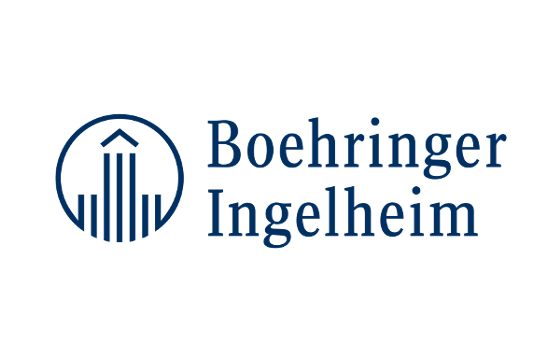 Science 37, an industry leader in virtual clinical trials, and Boehringer Ingelheim announced a technology enterprise collaboration agreement that will support Boehringer Ingelheim in running remote clinical trials. Science 37 is licensing access to its proprietary software platform, NORA® (Network Oriented Research Assistant), which leverages mobile technology and telemedicine capabilities, enabling patients to participate in clinical research studies regardless of their geographical location. The new collaboration brings together Science 37’s technology for running remote clinical trials and Boehringer Ingelheim's extensive capabilities in drug discovery and clinical development of novel treatments.
Science 37, an industry leader in virtual clinical trials, and Boehringer Ingelheim announced a technology enterprise collaboration agreement that will support Boehringer Ingelheim in running remote clinical trials. Science 37 is licensing access to its proprietary software platform, NORA® (Network Oriented Research Assistant), which leverages mobile technology and telemedicine capabilities, enabling patients to participate in clinical research studies regardless of their geographical location. The new collaboration brings together Science 37’s technology for running remote clinical trials and Boehringer Ingelheim's extensive capabilities in drug discovery and clinical development of novel treatments.
"Patient Centricity is a key driver for our pipeline and portfolio. Our mission is to bring novel value added therapies to patients. By leveraging a platform such as NORA®, we will be able to allow patients to participate in clinical trials on their schedule and timetable. This is pivotal in ensuring patients feel they are invaluable partners in helping us to develop and deliver novel therapies worldwide," said Thor Voigt MD/PhD, Chief Medical Officer of Boehringer Ingelheim.
The NORA® platform enables end-to-end virtual or remote clinical trials and adheres to the highest industry quality and regulatory standards. Unlike other mobile health technology companies, Science 37's remote clinical trial model - called the Metasite™ - helps researchers engage directly with trial participants through every stage of the trial, from screening and recruitment to telemedicine-based patient care to data lock. This direct connection online allows for greater retention of patients, increased diversity across trials, and significantly faster recruitment. The patient’s data are sent securely via NORA® to researchers who can immediately access information that would otherwise have to be collected by medical personnel through face-to-face interactions at study centers. The platform can also be used to remind patients to take their study medications at the proper time and let researchers know if participants are adhering to the study requirements.
"We've designed NORA® as a platform that provides researchers flexible options for how and where to collect evidence," says Chris Ceppi, Science 37's Chief Product Officer. "Our collaboration with Boehringer Ingelheim allows us to do even more virtual trials on a larger scale - which is great news for both patients and scientists."
This technology enterprise collaboration agreement between Boehringer Ingelheim and Science 37 positions both companies in the forefront of the global digital health transformation. Science 37's NORA® technology will allow Boehringer Ingelheim to accelerate enrollment and improve the participant experience with decreased patient burden, better patient retention and reduced total trial time. In addition to providing access to NORA®, Science 37 will advise on study design, protocol development, and regulatory strategy based on its unique experience in running remote clinical trials. Additionally, Boehringer Ingelheim will have the option to enlist Science 37's teams to provide a variety of Metasite™ trial services, including principal investigators, clinical research coordinators, and patient recruitment strategies.
"When an industry leader in innovation such as Boehringer Ingelheim makes a commitment of this magnitude it signals a bright future for the patient-centered Metasite approach to clinical trials, and we're glad we can help support it," says Noah Craft, MD, PhD and Co-Founder and CEO of Science 37. "We appreciate the confidence Boehringer Ingelheim has shown in Science 37 and our position as the leading technology provider for remote clinical trials."
Boehringer Ingelheim’s technology enterprise collaboration agreement with Science 37 covers use of its NORA® technology across the U.S. with plans to expand internationally in the future.
"While the U.S. is the starting point for exploration of this technological collaborative partnership we are committed to our patients globally. We aim to expand this new approach and democratize the concept of clinical research and drug development worldwide." said Lilija Kircheis,MD,PhD, Head Global Clinical Operations, Boehringer Ingelheim.
About Science 37
Headquartered in Los Angeles, Science 37 is a technology-enabled clinical research company built by a team of doctors, scientists, and technologists whose mission is to accelerate biomedical research by putting patients first. Science 37 is revolutionizing clinical research with a decentralized operating model - the Metasite™ - which aims to connect all people to science. The Network Oriented Research Assistant (NORA®) is Science 37’s cloud-based, patient-centric mobile platform that safely and securely supports end-to-end clinical trial services, from recruitment to complete remote trial execution. By removing geographic limitations, Science 37 has demonstrated an ability to recruit diverse participants, while increasing clinical trial efficiency and speed. Ultimately, Science 37 enables higher quality, people-powered science to advance digital health innovation.
Boehringer Ingelheim
Improving the health and quality of life of patients is the goal of the research-driven pharmaceutical company Boehringer Ingelheim. The focus in doing so is on diseases for which no satisfactory treatment option exists to date. The company therefore concentrates on developing innovative therapies that can extend patients' lives. In animal health, Boehringer Ingelheim stands for advanced prevention.Family-owned since it was established in 1885, Boehringer Ingelheim is one of the pharmaceutical industry's top 20 companies. Some 50,000 employees create value through innovation daily for the three business areas human pharmaceuticals, animal health and biopharmaceuticals. In 2017, Boehringer Ingelheim achieved net sales of nearly 18.1 billion euros. R&D expenditure, exceeding three billion euros, corresponded to 17.0 per cent of net sales.
As a family-owned company, Boehringer Ingelheim plans in generations and focuses on long-term success. The company therefore aims at organic growth from its own resources with simultaneous openness to partnerships and strategic alliances in research. In everything it does, Boehringer Ingelheim naturally adopts responsibility towards mankind and the environment.